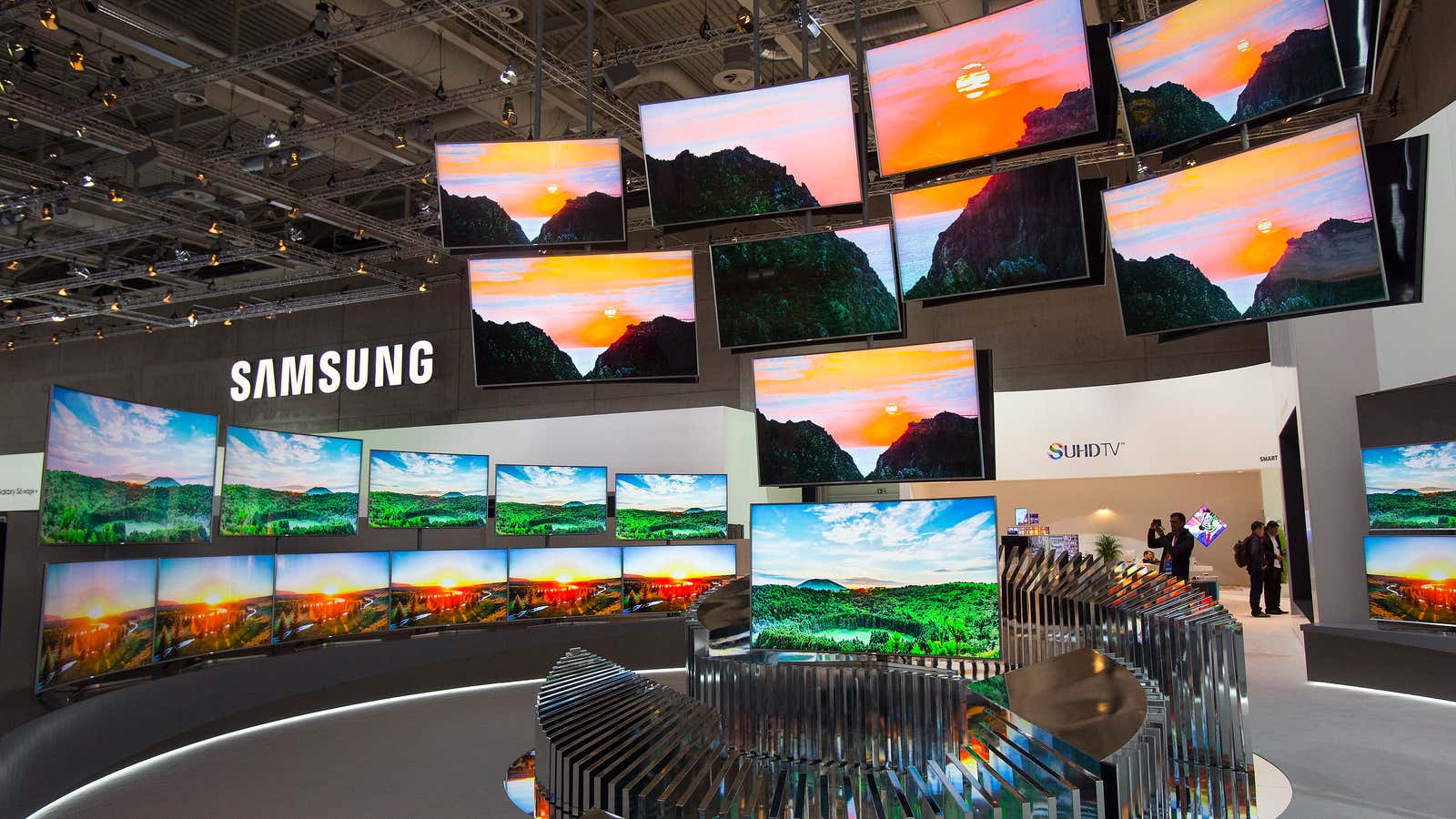In the wake of Volkswagen’s emissions cheating scandal, the focus is shifting to other devices and their environmentally friendly claims.
An unpublished study by ComplianTV, an EU-funded research group, found that Samsung televisions in Europe use less power when they are being tested for energy-efficiency ratings than during real-world use, according to the Guardian. The European Commission told the newspaper it is planning to investigate whether schemes to cheat on environmental tests are being ”used in other product sectors,” adding that “products found to behave differently under test conditions cannot be considered compliant.”
Samsung TVs have a “motion lighting” feature that dims their brightness, and reduces power consumption, when pictures on screen are moving rapidly. The ComplianTV research showed that the motion lighting feature works as promised under International Electrotechnical Commission (IEC) test conditions, but in real-world conditions—i.e., in customers’ homes—it uses more power, ”making the sets’ power consumption, fuel bills and carbon emissions correspondingly higher.”
Sweden’s government has also been looking into TVs from unspecified manufacturers that “clearly recognize” the video used in testing, and which “immediately lower their energy use by adjusting the brightness of the display” in response.
Samsung “firmly denied” the suggestion that its motion lighting feature is a so-called “defeat device” designed to activate only under testing conditions. “Motion lighting is not a setting that only activates during compliance testing,” the company said in a press release:
Motion lighting was introduced in 2011 across all our TVs as part of a range of features we have developed to help reduce the environmental impact of our TV technology. We are immensely proud of these technologies and look forward to innovating further in this area.
If the customer chooses to alter their display settings or switch to a different mode then the feature switches off, which gives our customers a simple choice of whether they choose to prioritise power efficiency or performance in their TV.
Quartz has contacted Samsung, which was not immediately available for comment.
No one is accusing Samsung of breaking any laws, but the Guardian’s report does suggest that, as with the auto industry’s emissions tests, electronics companies may be gaming tests to put a positive spin on their official environmental ratings. In the wake of the Volkswagen scandal, prepare yourself to deal with this question: What other devices have been lying to us?




